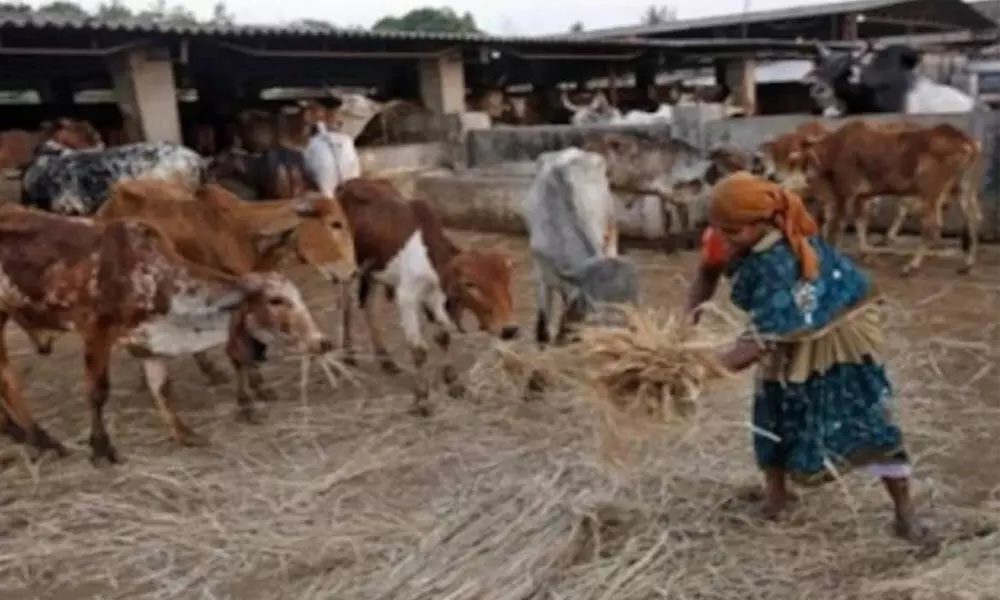Anantapur: New Govt scheme to give boost to cattle rearers

For representation purpose
Under the scheme, farmers having large land holdings of minimum 10 acres can raise fodder in their lands and get a lease amount of Rs 10,000 per acre apart from commission payments
Anantapur: The department of animal husbandry has launched afodder production schemeunder which farmers having large land holdings of minimum 10 acres or so can raise fodder in their lands and get a lease amount of Rs 10,000 per acre apart from commission payments of Rs 10,000 per cutting and Rs 30,000 for 3 cuttings a year totaling the amount to Rs 40,000 income per year.
The fodder raised in the farmers land should be sold to farmers at a subsidised price. The department will pay a lease amount of Rs 10,000 per acre to the farmers who raise fodder for farmers on behalf of the government, according to department sources. The scheme is expected to be a boon to cattle farmers and fodder growers especially during summer season when fodder availability is scarce. Non-availability of water and fodder scarcity are the two demotivating factors for farmers for not taking up cattle rearing. Cow and buffalo rearing are being recommended by one and all in the rural areas for supplementing the volatile income on agriculture as cultivation is subject to the vagaries of nature.
NABARD and the state government at one time encouraged domestic rearing of cattle as it is proved that raising of even a couple of buffaloes or cows could steer farmers in distress out of their economic problems. Many farmers had given up cattle rearing due to non-availability of fodder and their inability to raise fodder in their own lands due to water scarcity.
Many small and marginal farmers deem fodder growing as a luxury in view of the small extent of two to three acres of lands they possess. The new scheme when implemented will provide the much-needed encouragement to farmers. Agriculture, horticulture and livestock rearing should be the three-pronged approach for any farmer in Rayalaseema and Anantapur in particular to survive drought conditions, feels the agriculture and integrated cattle farmers. Integrated approach is being recommended for achieving sustainability in agriculture operations. The dairy sector is in crisis due to dependence on outside supply of fodder. Many had sold their livestock unable to feed their animals.
In the past every village used to have grazing fields alienated for the exclusive purpose by the panchayat but over a period of time they had been occupied by vested interests and today it is difficult to find government grazing fields and even if they existed the government allotted the lands for other purposes and developmental projects. Kamalamma, a woman farmer of Kotanki village talking to The Hans India said that erratic monsoon over the years had compelled her family to dispose of their livestock to coup up with drought conditions and tide over famine.
"If the government can assure fodder supply through its new scheme, then our family will think of reviving our age-old tradition of raising cattle," she adds. Vijay, an educated farmer of Garladinne, stated that the state government can implement the scheme immediately and encourage farmers who have abundant water sources to raise fodder in their lands on a commercial scale and sell the same to cattle farmers so that fodder scarcity does not arise. Government should provide incentives and subsidies to such entreprenuers. Government should even lease out land for such enterprising farmers to raise fodder production centres as it would cater to cattle rearing farmers.








